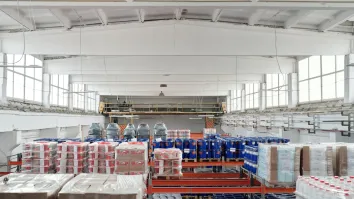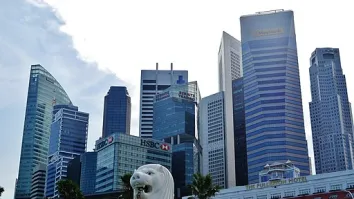
Seoul office investment market slows down in Q1
There were limited transaction closings.
According to a Savills report, the Korean economy has entered 2025 facing increasing headwinds, as the Bank of Korea recently revised downward its GDP growth forecast for 2025 from 1.9% to 1.5%, citing persistent challenges in both domestic consumption and export markets.
“This downward adjustment reflects broader concerns about the economy's momentum as global demand continues to show signs of fragility, particularly from China, Korea's largest trading partner,” the report added.
Here’s more from Savills:
The Seoul office investment market has experienced a notable slowdown in Q1/2025, with transaction volume significantly below the quarterly average observed in 2024. Despite an abundance of office assets being marketed for sale, actual transaction closings have been limited. The bid-ask spread has widened as sellers maintain price expectations established in 2023-2024, while buyers have adopted more conservative underwriting given the uncertain economic outlook and rising vacancy concerns.
A distinctive trend becoming more prominent in Q1 is that transactions actually progressing to closing are increasingly backed by end-users, such as CJ Olive Young and Hanwha Group affiliates, rather than traditional institutional investors. These end-user acquisitions typically involve companies purchasing buildings for their own occupancy, thereby eliminating leasing risk concerns which currently deter many institutional investors. This shift signals a market recalibration phase where traditional investment models are being challenged by the current economic environment.
In the logistics sector, oversupply concerns, lingering since 2023, are easing. New completions in 2024 halved compared to 2023, with further reductions expected, suggesting the market is bottoming out. Also, the increase in distressed asset listings, primarily through court and public auctions, resulted in broader price corrections across the market.
Amid these conditions, foreign investors have increasingly viewed the Korean logistics investment market as an attractive entry point. In Q1/2025, foreign investors including GIC, Brookfield, Warburg Pincus, and Oaktree Capital accounted for 83% of the total logistics transaction volume, which reached KRW1.3 trillion.
Looking ahead, this trend is expected to persist throughout the year, with foreign capital continuing to play a dominant role in the market. The logistics investment volume is anticipated to exceed 2024, supported by a number of structural shifts.
Following a period of explosive growth, new supply of logistics centers is expected to contract steadily, helping to narrow the supply-demand imbalance which has plagued the sector in recent years. In particular, mounting concerns surrounding the cold storage segment are beginning to ease, as landlords pursue conversion strategies from cold to dry storage to mitigate vacancy risk and enhance asset flexibility. These developments, combined with increased investor selectivity and normalization of supply, are expected to support a rebound in overall investment activity in 2025.



















 Advertise
Advertise





